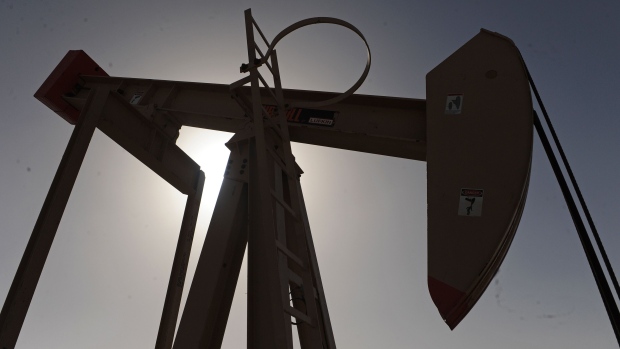Jul 25, 2022
Milestone for Libyan Oil as Output Hits 1 Million Barrels a Day
, Bloomberg News

(Bloomberg) -- Libya boosted oil production to more than 1 million barrels a day, a milestone for the North African country where output had more than halved since mid-April.
The OPEC member, home to Africa’s largest crude reserves, ramped up its production to a “little over” a million barrels a day, Oil Minister Mohamed Oun said. The increase follows an agreement with protesters and tribal heads reached more than a week ago to reopen fields and export terminals that had been largely shut since mid-April. Before the restart, production was down to 560,000 barrels a day.
Libya has seen production plummet by about 50% in recent months due to a power struggle between rival governments, while chronic underinvestment in infrastructure also curtailed output. Higher Libyan production could offer some relief for undersupplied oil markets and high prices that have stoked inflation across the globe.
Part of the deal to reopen oil was the government’s move on July 14 to overhaul the board of the state oil firm National Oil Corp. and the appointment of Farhat Bengdara as head of the group. He replaced Mustafa Sanalla, who had frequently been at odds with the oil ministry that was reinstated by the Tripoli-based government. Bengadara vowed to ramp up production quickly to its normal levels of 1.2-1.3 million barrels a day soon.
Libya’s energy facilities have been at the heart of the North African nation’s conflicts over the past decade, with various groups shutting down oil output to press their political and economic demands.
The nation has been mired in conflict since the fall of dictator Moammar Al Qaddafi in 2011. It’s now facing a standoff between two politicians -- Abdul Hamid Dbeibah in the west and Fathi Bashagha in the east-- who each claim to be the legitimate prime minister. The recent closures in mid-April were linked to politics with some protests at ports and fields demanding the transfer of power to Bashagha, the fair distribution of oil revenues and the dismissal of Sanalla.
©2022 Bloomberg L.P.






